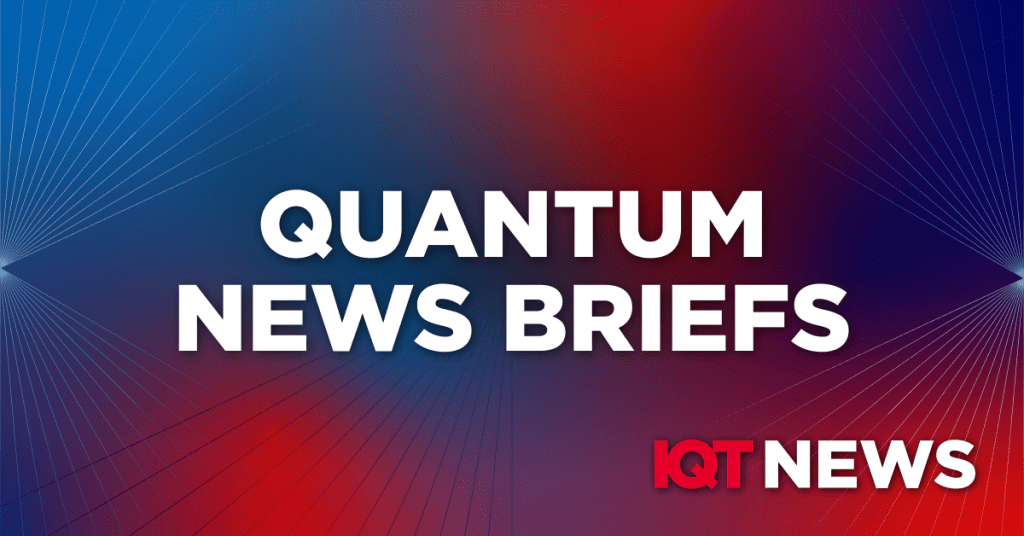Quantum News Briefs: February 22, 2024:
Diraq Opens New Commercial Laboratory in Sydney to Propel the Era of Fault-Tolerant Quantum Computing
Diraq, a frontrunner in quantum computing with its innovative silicon ‘quantum dot’ technology, celebrated the inauguration of its advanced commercial quantum computing laboratory at the University of New South Wales (UNSW) in Sydney, Australia. This facility, spanning 200 square meters, is designed for minimal vibration and disturbances, essential for quantum measurements, and comes equipped with the latest technology for the cryogenic testing of silicon quantum devices. The lab’s opening drew notable figures, including The Hon. Ed Husic MP and Australia’s Chief Scientist Cathy Foley, among others, highlighting the significance of this milestone in the quantum computing industry. With Diraq’s focus on leveraging existing semiconductor manufacturing processes to develop silicon chips capable of supporting billions of qubits, the company is taking a significant step towards realizing the mass production and commercial scalability of quantum computing. The event underscored Diraq’s leading position in the field, supported by substantial funding and partnerships, including a recent Series A-2 funding round led by Quantonation, signaling a major leap forward in the quest for fault-tolerant quantum computing.
QuSecure Approved for AWS ISV Accelerate Program Broadening Availability of Leading Post-Quantum Cryptography Solution
QuSecure™, Inc., a post-quantum cryptography (PQC) company, has announced its entry into the Amazon Web Services (AWS) Independent Software Vendor (ISV) Accelerate Program, aiming to enhance its business reach by leveraging AWS’s vast sales network. This membership facilitates the direct collaboration between QuSecure and AWS sales teams, significantly benefiting QuSecure’s deployment of its QuProtect software on AWS. QuProtect offers quantum-resilient cryptography solutions designed for a broad spectrum of applications, including network, cloud, IoT, edge devices, and satellite communications, ensuring minimal disruption to existing encryption systems. It embodies an end-to-end security service that integrates zero-trust, cutting-edge PQC, and other advanced cybersecurity features. QuSecure’s inclusion in the AWS ISV Accelerate Program, along with its availability on AWS Marketplace and participation in the AWS Global Startup Program, underscores its commitment to providing advanced PQC solutions and highlights the company’s ongoing collaboration with AWS to protect against both current cyber threats and future quantum vulnerabilities.
IQM Quantum Computers Announces New Benchmark Result on 20-Qubit Quantum Computer
IQM Quantum Computers, a frontrunner in the quantum computing sector, has recently showcased the capabilities of its 20-qubit quantum computer through significant benchmark achievements, reinforcing its commitment to advancing commercial quantum computing. Leveraging its proprietary tunable-coupler technology for enhanced two-qubit gate speed and fidelity, IQM achieved a median two-qubit gate fidelity of 99.51% across 30 qubit pairs, with the highest fidelity reaching 99.8% for a single pair. These advancements were made possible by integrating high-quality control electronics with Quantum Processing Units (QPUs) manufactured in IQM’s own fabrication facility. The company reported impressive system-level benchmarks, including a Quantum Volume (QV) of 32, Circuit Layer Operations Per Second (CLOPS) of 2600, a 20-qubit GHZ state with fidelity greater than 0.5, and a Q-score of 11. Dr. Juha Hassel, Head of Engineering and Development at IQM, highlighted these achievements as critical milestones towards achieving the company’s vision of building quantum computers for the benefit of humanity, ensuring high performance and value for customers. With ongoing development towards prototype systems up to 150 qubits, IQM is poised for further advancements, buoyed by increasing interest and investment in quantum technology.
Illinois governor JB Pritzker Devotes $500 million to quantum computing ecosystem
Illinois Governor JB Pritzker is allocating half a billion dollars in the state’s new budget to advance quantum computing, signaling a major push to position Illinois as a leading center for semiconductors, quantum technology, and AI. In an effort to further establish the state’s footprint in the quantum realm, Pritzker outlined a comprehensive plan that includes $200 million for a cryogenic facility crucial for quantum computing, $100 million to develop a quantum campus, and $200 million in matching funds for the project. This investment is seen as a complement to Illinois’ efforts to host the National Semiconductor Technology Center, a research and development accelerator being established under the CHIPS Act. The state’s rich ecosystem, featuring national labs like Fermi and Argonne, along with the University of Chicago, the University of Illinois, and the Chicago Quantum Exchange, is expected to strengthen its bid. The initiative has been met with enthusiasm from the quantum computing industry, with leaders viewing it as a significant step toward making Illinois—and the U.S.—a global leader in the critical technologies of the future.
In Other News: Investor Place article: “3 Quantum Computing Stocks That Could Be Multibaggers in the Making: February Edition”
The quantum computing sector is witnessing significant advancements and financial growth, with companies like IonQ, D-Wave Quantum, and Rigetti Computing leading the charge, highlights a recent Investor Place article. IonQ has raised its full-year revenue guidance to between $21.2 million and $22 million, thanks to its groundbreaking work in quantum computing, which has implications for drug development, clean energy, and food production. The company has also inaugurated its first manufacturing facility in Washington, aiming to produce quantum computers for client data centers. D-Wave Quantum has made its 1,200+ qubit Advantage2 prototype available and is exploring commercial quantum computing applications in collaboration with Zapata AI and NEC Australia. Meanwhile, Rigetti Computing‘s stock experienced a significant volume spike, reflecting investor interest following a grant from Innovate UK to develop a quantum computer featuring advanced technology for faster gate times and higher fidelity. These developments underscore the quantum computing industry’s rapid growth and its potential to exceed $6.5 billion by 2030, driven by investments and initiatives from countries around the globe.
Kenna Hughes-Castleberry is the Managing Editor at Inside Quantum Technology and the Science Communicator at JILA (a partnership between the University of Colorado Boulder and NIST). Her writing beats include deep tech, quantum computing, and AI. Her work has been featured in National Geographic, Scientific American, Discover Magazine, New Scientist, Ars Technica, and more.
